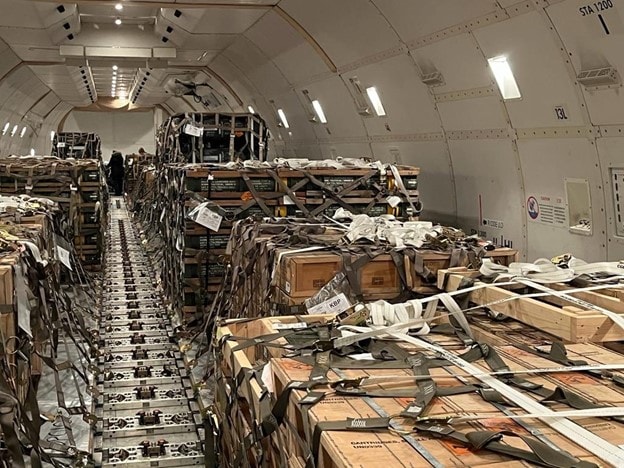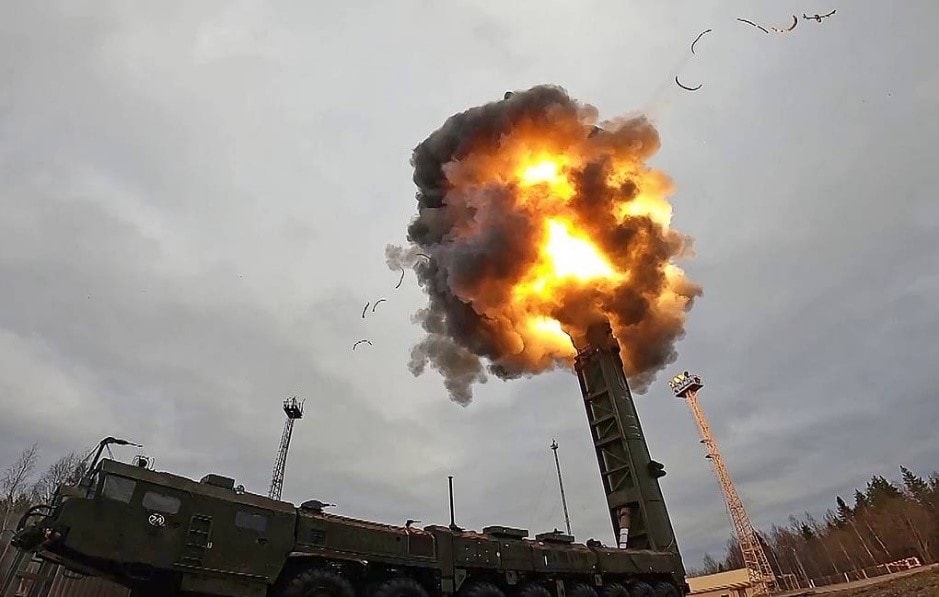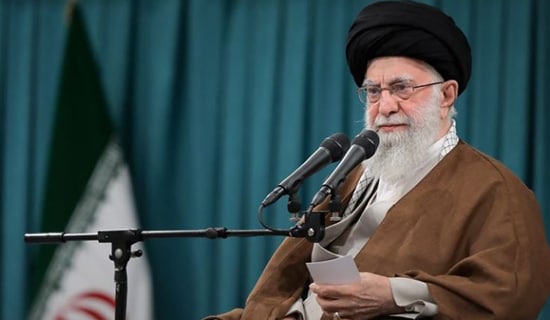In a lengthy February 14 article titled "Sham Attacks", Kommersant drew up a sober balance sheet of what Russia had gained and lost so far from the crisis. On the plus side it had gotten the West's attention and forced it to begin negotiating on proposals that Washington and its allies had previously rejected as inadmissible. On the negative side of the ledger, the constant drumbeat about an imminent invasion had hardened attitudes in Ukraine and the West against Russia and had prompted an airlift of arms to Kiev. Although the pluses and minuses appeared balanced, Kommersant noted: 'However, the Russian diplomatic and military pressure exerted over the last 3 months has had numerous negative effects. And unlike the advantages that still exist only on paper, many of them are already quite practical in nature.'
Kommersant's interim balance sheet for Russia follows below:[1]

Western arms arrive in Ukraine (Source: Babel.ua)
The Positive Side Of The Ledger
"...If, considering the aforementioned, Moscow has succeeded in creating tension in the West, the task of obtaining security guarantees appears more complicated.
"Let us recall that in mid-December, Russia transferred to the US and NATO draft treaties, which describe in detail what Moscow wants from them. Among other things, these guaranties include: a renunciation of [further] NATO enlargement (primarily at the expense of Ukraine), a guarantee on the non-deployment of missile strike systems in Europe that threaten Russia, and the withdrawal of NATO's troops and infrastructure and to the borders of 1997. The written text was accompanied by a verbal ultimatum: if these demands were not fulfilled, a military-technical response would follow.
"However, it is unlikely that the people involved in the decision-making in Moscow actually expected that their demands would be satisfied exactly in the form that they were put forward. No matter what Russian officials may say publicly, they are well aware that no US president can proclaim the termination of NATO's 'open door policy,' even regarding a single country (in this case – Ukraine).
"However, if one to assess Russia's goal as 'obtaining legally binding guarantees that Ukraine won't join NATO' not in a straightforward way, but in a broader context, it can also be achieved differently: through the implementation of the Minsk agreements on settling the Donbass conflict.
"The thing is that the return of Donbass to Ukraine in strict compliance with the Minsk agreements, as Moscow wants, would bar Kiev's entry to NATO for a long time. 'The 'road map' for conflict settlement (the document that is in Kommersant's possession), filed by the unrecognized DPR and LRP to the Trilateral Contact Group back in 2020, proposes that the republics be provided with a special status until 2050.
"However, the self-proclaimed republics insist that this term can be extended in referendums, which should be held no earlier than 2045 and no later than 2049.
"The Minsk agreements and the DPR's and LPR's proposals based on them (Kiev has not yet provided any reply to the road map) imply (if the entire text can be compressed into a single phrase) the creation of a state within a state on the territory of Ukraine). Aside from the emergence of alternative centers of power and decision-making to Kiev, such a structure has considerable conflict potential: one can forecast with confidence that tensions between the center and these regions will arise on all issues.
"An added effect of implementing the Minsk agreements could signify that some other of the country's regions, especially those compactly populated by other ethnic groups, might want autonomy, following the example of Donbass. For a state with a weak central government, such as Ukraine, this threatens chaos. It seems, that Ukraine's Security Council Secretary, Alexei Danilov was talking about exactly that chaos in an interview with The Associated Press, urging the West not to exert pressure on Kiev to implement the Minsk agreements.
"However, so far there are no signs that the Ukraine intends to implement the agreements, that were exactly seven years of age last week.
"After Russian diplomatic and military pressure, the talks in the Normandy Format were resuscitated, and the first meeting following a long pause even gave reason for optimism.
"However, the last round of Normandy Format talks has failed, and this benefits Kiev, whose tactic is to, avoid withdrawing from the agreements and negotiations on their implementation, and not to implement them as a result. President Zelensky and his team are concerned more about self-preservation and the forthcoming elections (i.e. parliamentary elections in 2023 and presidential one in 2024). They understand that any compromise on Donbass could detonate the internal political situation and result a change of power. The fear of Maidan clearly outweighs the desire to end the war.
"This situation irritates Moscow, which basically demands that the West apply more pressure on Ukraine. Judging by the Western politicians' statements, including that of French President Emmanuel Macron, this pressure is there, but Vladimir Zelensky has not yet yielded.
"Among the more obvious positive achievements [of Russian policy] is the US willingness to discuss with Russia 'the deployment and use of armed forces in Ukraine.'
"This is exactly how this topic is outlined in the written response of the US side to the Russian demands. As follows from this document, the US offers Russia to begin talks on 'measures of mutual transparency' and 'mutual obligations', which provide for non-deployment of ground-based offensive missile systems and regular contingents with combat tasks on Ukraine's territory. Previously, Moscow expressed concerns that strike systems and US and other NATO member-state bases might be deployed on Ukrainian territory.
"Another positive development (from the perspective of Russian interests) is that expert discussions have begun in the US and Europe arguing that NATO's further enlargement isn't worthwhile (or at least that a moratorium be introduced on the acceptance of new members) and that Europe requires a different security architecture to replace the one built after the end of the Cold War. Over the past 3 months' columns and interviews on these issues have made their appearance in many respected Western publications. Such a situation was virtually non-existent before.
"There's another achievement: the US expressed willingness (including in writing) to discuss with Russia arms control, military restraint, as well as the prevention of dangerous incidents.
"Many of the measures mentioned in Washington's reply as well-advised have been promoted by Moscow for several years, alas with no success.
"The most striking example [of the Kremlin's success] is Russia's proposal, which was announced back in 2019, to introduce a moratorium on the deployment of previously banned intermediate-range and short-range missiles in Europe.
"Until recently, the US and its NATO allies publicly called it ' inadmissible and untrustworthy.' However, Washington's response to Moscow's ultimatum explicitly states that the Americans agree to negotiate on this issue.
"Furthermore, the letter specifies that the US is willing to discuss with Russia a transparency mechanism, for confirming the absence of 'Tomahawk' cruise missiles in the vicinity of deployed 'Aegis Ashore' systems in Romania and Poland, provided that Russia grants mutual conditions of transparency with regards to two (according to the US choosing) ground-based missile bases on its territory. Earlier, a proposal to introduce similar verification mechanisms was put forward by the Russian side, but it is only now that it is being heeded."
The Minus Side
"However, the Russian diplomatic and military pressure exerted over the last 3 months has had numerous negative effects. And unlike the advantages that still exist only on paper, many of them are already quite practical in nature.
"For instance, arms supplies from Western countries to Ukraine have intensified dramatically. Military cargo planes from the US and other NATO member-states land one after another at Kiev's Boryspil airport, delivering ammunition, arms and instructors (for more info, see infographic attached). On Saturday night, Ukrainian Defense Minister, Oleksii Reznikov via his Twitter account announced that the US alone had delivered 1,300 tons of military aid to Ukraine.
"From the standpoint of Russian interests, this, undoubtedly, is an extremely undesirable trend. According to [Putin's top foreign policy aide] Yuri Ushakov, during his conversation with Joe Biden on Saturday, Vladimir Putin 'drew attention to the dangers of Ukraine's militarization and pumping up the country with modern arms, which Western countries are purposefully doing, thereby encouraging potential provocations by Ukrainian security forces both in Donbass and in Crimea.'

Yuri Ushakov (Source: Ria.ru)
"Meanwhile, the buildup of troops and arms on NATO's 'eastern flank' has been no less intensive in recent months. Some military personnel are being transferred to the region directly from the US. At the beginning of this week, about 3,000 more American troops are expected to arrive in Poland. It's reported that these contingents are intended to strengthen the defense capabilities of eastern European NATO member-states and won't be involved in possible hostilities in Ukraine.
"The rise in anti-Russian sentiments in Ukraine has become another negative effect for Russia.
"Thus, in a December poll conducted by the Kiev International Institute of Sociology, 59.2% of respondents would vote for Ukraine's accession to NATO, while 49.2% found it highly likely that Russia would invade Ukraine. Meanwhile, 57.8% of respondents said that the Ukrainian authorities should do better in countering Russia. These indicators have risen compared to a similar poll conducted in February of last year.
"Against the background of constant statements concerning the growing 'Russian threat,' a further worsening of attitudes toward Russia in many Western countries is to be expected. Kommersant was unable to find any recent global polls, but, for example, in a January Pew Research Center poll conducted in the US 49% of respondents stated that they perceive Russia as a rival, 41% - as an enemy, and only 7% - as a partner.
"During a February poll of citizens of 7 EU member-states commissioned by ECFR, 73% of Poles and 64% of Romanians stated that they asses a 'Russian invasion of Ukraine this year' to be 'likely' or 'very likely.' Meanwhile, residents of most of the countries surveyed said that their governments should participate more actively in Ukraine's protection from 'Russian aggression.'
"Other negative consequences of Moscow's November initiative could be considered: the rallying of NATO against the background of the 'Russian threat,' the rapprochement between NATO and the EU, as well as the growing number of proponents of NATO membership in Finland and Sweden. Alarmist rhetoric about the impending 'Russian invasion' and threats of tough sanctions have a negative effect on the quotes of Russian companies, as well as the ruble exchange rate.
"Thus, one can argue that in 3 months diplomatic and military pressure on the West has brought Russia numerous extremely undesirable results along with positive ones..."
[1] Kommersant.ru, February 14, 2022.








